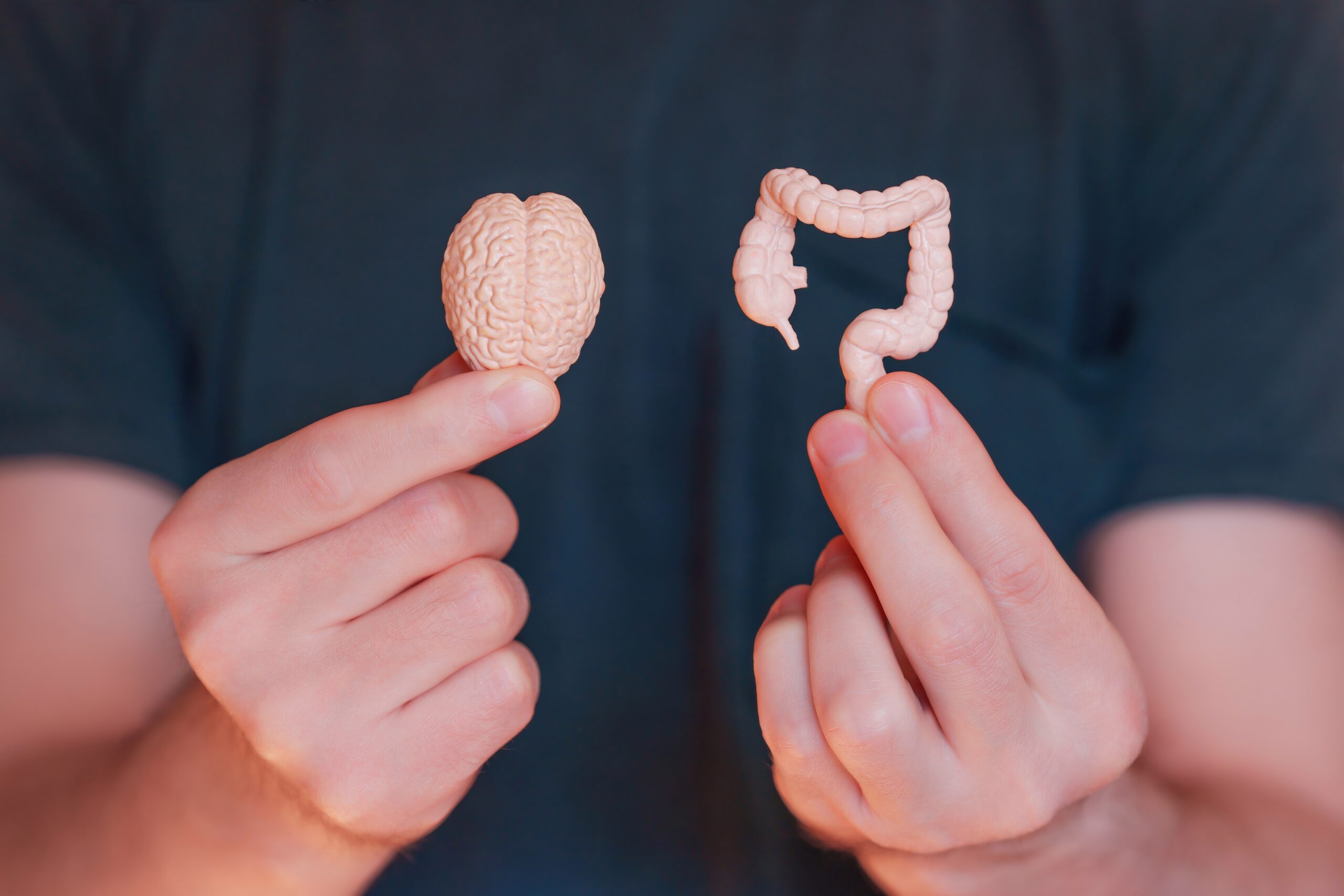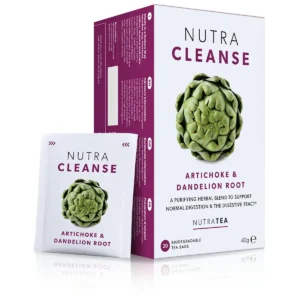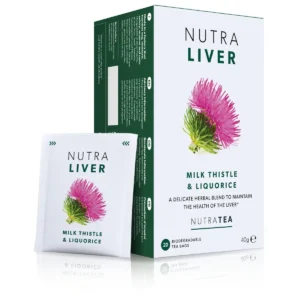NutraBlog
The gut-brain connection: How your digestive health affects your mood

Do you know your gut and brain are constantly talking to each other? This powerful gut-brain axis links digestion, mood, and mental health. If your gut is out of balance, it could show up as anxiety, low energy, brain fog, or poor focus. In this guide, we explore the science behind the gut-brain connection, signs your gut might be affecting your mood, and simple ways to restore balance. Learn how lifestyle changes, and herbal teas like NutraCleanse, NutraLiver, and NutraBoost, can support both your digestive system and emotional wellbeing.
Here at NutraTea, we believe in a holistic approach to health, one that supports both mind and body naturally. Discover how nurturing your gut could be the key to a calmer, happier you.
What is the gut-brain axis?
The gut-brain axis refers to the two-way communication between your central nervous system (the brain and spinal cord) and your enteric nervous system (the gut). This connection is made possible through:
- The vagus nerve – the direct physical link between your brain and digestive system
- Hormones and neurotransmitters – such as serotonin and dopamine
- Gut microbiota – the trillions of bacteria living in your digestive tract
Together, these systems influence everything from digestion to how you feel emotionally. In fact, about 90% of your body’s serotonin (aka, the key feel-good hormone) is actually produced in the gut, not the brain.
When your gut is healthy, it can send calming, positive signals to your brain. But when it’s imbalanced, due to poor diet, stress, illness, or antibiotic use, it can contribute to symptoms such as low mood, anxiety, fatigue, and even brain fog.
How do I know if my gut is affecting my mood?
If you’re struggling with digestive discomfort and feeling off emotionally, it could be a sign that your gut health is influencing your mental state. Common symptoms of gut-brain imbalance include:
- Bloating, gas, or irregular digestion
- Low energy or fatigue
- Feeling anxious, low, or irritable
- Brain fog or poor concentration
- Cravings for sugar or processed foods
- Difficulty sleeping
Supporting your gut can, in turn, support your mind. And one of the simplest ways to begin is with your daily habits and nutrition.
How can herbal teas support the gut-brain connection?
Herbal teas are a gentle, effective way to nourish your digestive system and calm your mind at the same time. Here are some examples of blends that can help restore balance across both systems:
NutraCleanse
NutraCleanse is a powerful blend designed to support healthy digestion and the natural detox process. Ingredients like dandelion, burdock root, and milk thistle help cleanse the liver and digestive tract, two key players in maintaining gut balance. Enjoy in the morning to gently wake up your digestive system and set the tone for a clear, energised day!
NutraLiver
The liver plays a major role in breaking down toxins, regulating hormones, and supporting digestion. NutraLiver contains herbs like artichoke and chicory, known for their liver-protective and digestion-supportive benefits. Sip after meals to ease bloating and support your gut’s natural rhythm.
NutraBoost
When the gut is happy, the mind often follows. NutraBoost contains guarana, ginseng, and green tea – a perfect trio known to reduce fatigue and enhance cognitive performance. If stress or sluggishness is impacting your focus and mood, this energising blend can help restore clarity from the inside out. Perfect in the early afternoon for a gentle lift without the jittery crash of caffeine.
What are some everyday tips to strengthen the gut-brain connection?
Herbal teas work best when paired with healthy lifestyle habits. Here are some simple, natural ways to support your gut and uplift your mood:
Eat more fibre
Whole grains, fruits, vegetables, and legumes help to feed the good bacteria in your gut.
Include fermented foods
Natural probiotics like yoghurt, kefir, kimchi, or sauerkraut can help maintain a balanced microbiome.
Stay hydrated
Water and herbal teas help your digestive system stay regular and resilient.
Move your body
Regular exercise improves gut motility and boosts mood.
Manage stress
Mindfulness, breathwork, or a warm cup of calming tea can soothe both body and mind.
Your mind and body aren’t separate, they’re deeply connected, especially through the powerful brain-gut axis. By supporting your digestive health with mindful nutrition, stress management, and functional herbal teas, you’re also investing in a cleaner, calmer, and more balanced state of mind.
At NutraTea, we’re proud to offer herbal blends that support every part of your wellness journey, from gut to brain and everything in between.
Explore our full range of teas and find your perfect blend for harmony from within.
Your Questions Answered
What is the gut-brain connection, and how does my digestive system communicate with my brain?
The gut-brain connection is a two-way communications system between your digestive system and brain. They ‘talk’ through nerves, hormones, neurotransmitters, and immune signals, affecting both digestion and mood.
What signs might show my gut health is affecting my mood?
Frequent bloating, gas, irregular digestion, fatigue, low mood, anxiety, or brain fog may suggest your gut health is influencing your mental wellbeing.
What daily habits support a healthier gut and better mood?
Eat more fibre, stay hydrated, include probiotics or fermented foods, manage stress through mindfulness or exercise, and prioritise quality sleep.
Which foods are best for the gut-brain connection?
Focus on fibre-rich foods like fruits, vegetables, legumes, and whole grains to feed beneficial gut bacteria, supporting digestion and mood balance.



